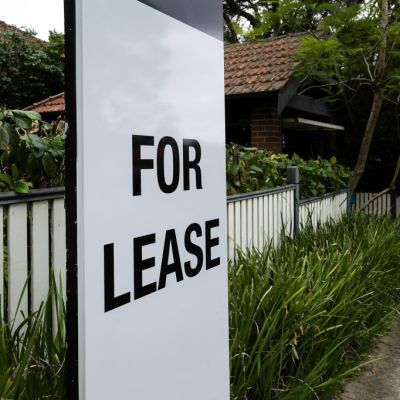‘Landlords faced few consequences’: How renters were left in the lurch
A string of landlords faced little to no accountability for keeping their investments in such poor condition it harmed the health and financial wellbeing of their tenants, a new report found, prompting calls for a system of roadworthy-like certificates for rentals.
Anika Legal’s Too Hot, Too Cold, Too Costly report on renters in Victoria found they were living in poorly maintained properties that were energy inefficient, and faced significant barriers to having their home brought up to scratch.

The pro-bono tenancy advocacy service’s report based its findings on the cases of 38 tenants who sought its help to get repairs done; just eight of them had the works done, and one of those had to pay for the repairs themselves.
“The impact that it has on renters is so huge,” Anika Legal chief executive Noel Lim said. “There are renters who are living in extreme temperatures. They’re having to choose between falling into debt and financial hardship and keeping their family or kids out of hospital.
“It’s a choice they’re forced to make and is a choice that no one should have to make.”
A range of studies has shown that Australian homes are not well-built for energy efficiency or climate resilience, and renters are more likely to live in poor-quality homes.
The report found renters who used Anika’s services had structural issues in their home which hurt their energy efficiency, such as holes and gaps in roofs and floorboards, draughty doors and single-paned glass windows.
Renters also tried to get landlords to repair issues with air conditioners, heaters and gas and water-plumbing systems. The tenants said they faced high utility bills and little willingness to fix issues which could alleviate the costs of running the home.
“When renters do assert their rights to have a home in good repair that meet minimum standards, landlords and their agents have regularly ignored their requests or flatly said no even when it amounts to a breach of their duties towards the renters. Landlords faced few consequences when they failed to meet their duties.”
In 18 of the 38 cases, tenants didn’t bother asking, and moved instead.
“They’re scared that if they do exert their rights they’re thinking they can get a rent increase they can’t afford in retaliation, and then they’ll be without their home in the worst rental crisis we’ve ever seen,” he said. “The cases that we took, what we’re really confident in is that renters are choosing to move rather than assert their rights.
“When you have almost half of renters making that decision, I think that’s a really clear indication that the system isn’t working.”
Real Estate Institute of Victoria president Jacob Caine disagreed that agents were part of the problem.
“There’s not a property manager in Victoria that doesn’t want to be compliant, but the resistance comes from the financial calculus of the people who make the decisions …and the owners of properties make the decisions.”
Sweltering Cities executive director Emma Bacon said the report’s finding echoed what her advocacy organisation had discovered anecdotally.
“I think unfortunately it’s something we’ve heard from renters across the state … people are worried that if they push for fixes or cooling it will affect their ability to stay in the house,” she said. “Having to move can have a huge expensive effect and lead to social disconnection.”
Lim praised recent state government moves to increase penalties levied on agents and landlords who advertise properties that don’t meet minimum standards, but said more was needed to tip the balance of power away from investors.
“We need to see it followed through and more of it,” he said. “And we need public reporting of these complaints, and it will promote transparency and will build renter confidence that landlords and agencies will be held accountable.
“We need to ban rent increases where the property doesn’t meet the minimum standards … We need roadworthies for rentals. All landlords should have to certify their home meets energy efficiency standards before they advertise it … so renters know exactly what they’re in for.”
Caine pushed back on further tightening of requirements to let out a home, and said growing interest in energy efficiency would lead to market-led solutions for finding out how well a home performs before buying or renting it.
New Energy Thinking energy efficiency consultant Richard Keech said mandating a disclosure scheme or “rental roadworthy” would be the most effective way to ensure its uptake.
“There should be a stronger way for houses that seem better to be seen as better in the eyes of buyers and renters,” he said. “They should be able to know how much a house costs to run before they rent it.”
We recommend
We thought you might like
States
Capital Cities
Capital Cities - Rentals
Popular Areas
Allhomes
More










